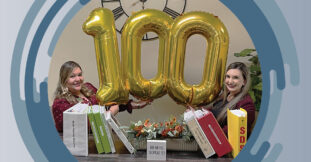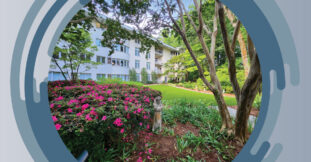CFOs and Assisted Living Software
Read a conversation with industry veteran Steve Crittenden on why the CFO role in senior living is shifting from accounting to analysis and operations.

Read a conversation with industry veteran Steve Crittenden on why the CFO role in senior living is shifting from accounting to analysis and operations.
Published on: June 5, 2023
Last updated: September 18, 2024

Contents
A chief financial officer (CFO) oversees big-picture and day-to-day accounts. But in the senior housing business, a CFO should understand more than just the bottom line. In many senior housing and later living communities, care is literally the product. As 2023 becomes the “Year of the Consumer,” better care means healthier ROI, not to mention healthier and happier residents.
Advancements in assisted living software improve results for residents and employees while gathering indispensable operations data. As the senior housing CFO’s job shifts focus from accounting to operations, the data harvested through senior housing software and mobile apps can provide key operations insights to improve outcomes for residents, families, staff, executives, and owners.
We recently caught up with Steve Crittenden, a consultant for Pegasus Senior Living and a 20-year industry expert in financial and operational strategy, to talk about the changing face of the assisted living CFO role. He explains how senior living software helps create higher ROI for owners by providing the best possible care for residents.
STEVE: Senior housing as we know it today is, ironically, only 30 or 40 years old. In the beginning, margins were substantially higher than today, approaching 40%. Within the last decade, we’ve seen a huge compression in profits and a lot of people coming in from outside the sector.
That competition and those reduced margins have forced CFOs from an accountant role into a focus on operational strategy: getting into the data, pulling the data, understanding it. Not to diminish the accounting aspect, but we’ve seen focus shift from understanding what happened yesterday to anticipating what will happen tomorrow.
STEVE: I started in commercial real estate with CBRE and did a lot of retail work. I have a fundamental appreciation for accounting, because it’s the foundation of everything we base analysis on.
I came into the senior living industry and cut my teeth on data and FP&A. When I became a CFO, I focused on mid-to-heavy accounting but really shifted in the last couple years toward understanding systems and extracting data. This led into my job being more of a CIO hybrid position where I came to understand the investment side heavily.
It matters who you’re entangled with and the state of your portfolio. For example, are you in a stabilized environment or an acquisition-centered environment? The CFO position has shifted heavily from an accounting role and into analysis.
STEVE: This is one of the most important questions you can ask. People might think the CFO is the chief bookkeeper, but we’re anything but. The role has shifted into being operationally involved, much more than we ever were before.
Because of our background and desire to get in and understand the data we’re extracting, CFOs have a unique niche in the senior housing industry in terms of how we can influence and improve care. We can interpret any metric, but we also have to understand that everything can’t be explained by a spreadsheet and a number. We must see the extremely real human component within our industry and emphasize the attention and comfort we give people in the latter stages of their lives. You may think care has an indirect value, but even from a financial perspective, care is our actual product, so care determines value.
CFOs in senior living need to combine understanding and empathy with a deep knowledge of every building in a portfolio. There’s a saying within assisted living: “If you’ve seen one building, you’ve seen only one building,” because they’re all so different. Understanding each building, the human element and community there, and making sure you’re staffing appropriately is like hitting a constant moving target. Using our resources to provide the best care for the residents in each facility is what makes the senior housing CFO unique compared to CFOs in other industries.
STEVE: We’re looking at tasks. The devil’s in the details, and as much as you have to step back and take a 10,000-foot view, in today’s environment you sometimes have to go granular. The right CFO combines understanding at the highest and lowest levels. We’re getting in and looking at daily tasks per individual resident, how each of these tasks affect our current staffing patterns, and how effectively we execute them on a shift-by-shift basis.
For instance, we’re running a case study on hip protectors. We’re looking at every resident with a task on hip protectors to see if employees are actually carrying out these tasks. Then we look at incidents where a resident falls. Do they get injured from the fall or not? How many get injured who were wearing the hip protectors versus those who were not?
We use the data to develop more robust strategies to provide care for our residents, prove the effectiveness of the devices and what times of day tend to be the most problematic. So, it’s all in the details and sometimes you have to dig down deep.
STEVE: I try to pull away from making things about money. At the end of the day, it is a business and we must balance the mission with the margin. Take care of the people and the money will come. Sometimes this requires trial and error, which is why data is so important. But as CFOs, we are a major part in testing new ideas. It’s our job to understand the outcomes and provide precise direction.
STEVE: When I think of technology, I consider how we’ve implemented innovations in our business. For instance, you wouldn’t think mobile care devices have anything to do with a CFO. But on a mobile device, you can track any activity a resident completes and any task a caregiver needs to perform, and it keeps everyone organized and efficient while gathering data for the CFO.
Technology gives us a picture of how care is being delivered throughout a building. We can decide on how to staff the building: Do we have too many people on the floor? Too many people at the front desk? And we can see this over the course of weeks, days, or even a single shift.
Using this data, we’ve rightsized our assessments considerably, ensuring tasks are properly assigned based on resident needs. This data also helps recognize the need for additional staff as acuity rises. Implementing the mobile care device has led to a direct impact on care for our residents, greater ROI, and positive results in our surveys from residents and families.
STEVE: Mobile devices have given us much greater insights into our care and had a direct impact on our staffing as we extract data from our EHRs. We track a percentage of total tasks completed using these mobile devices. About six to eight months ago, we were at less than 5%. Then we jumped to over 60% completion of total tasks. The mobile devices both tracked and facilitated this growth. As a direct result, we’ve seen acuity rise by over 20% in some cases, which has yielded hundreds of thousands of dollars monthly in care revenue.
STEVE: Data is king. Aline has really opened their doors to information. No two operators will look at something the same way. So even though most EHRs do an outstanding job reporting and trying to predict the needs of a CFO, nobody can get it a hundred percent right. Having a partner like Aline open their doors and give us access to our data, manipulate it and interpret it — there’s no way I could have been successful without access to our information. If you want to provide the best care, and see the best ROI, you need the kind of access and partnership Aline has provided.
Steve Crittenden is a consultant for Pegasus Senior Living, where he formerly served as CFO, CIO, and CAO. A 20-year veteran of the assisted living industry, Steve previously served as CFO/CIO at Proveer Senior Living, CFO at Sodalis Senior Living, and Director of Financial Planning at Pegasus Senior Living. He attended the University of Texas at Arlington and resides in Dallas, Texas.

Amanda McGrory-Dixon
Amanda McGrory-Dixon is the content marketing manager at Aline, where she shares expert insights on how senior living communities can streamline operations, enhance resident satisfaction, and drive sustainable growth. With a deep understanding of industry trends and technology, she helps operators navigate challenges and implement data-driven strategies to improve efficiency, profitability, and care outcomes.
Blogs, stories and studies from the forefront of senior living operations

Holland Home uses Roobrik to reach hidden website visitors, improve lead quality, and drive move-ins through personalized, early engagement

Smarter menu planning and streamlined ordering helped Elderwood reduce waste, lower costs, and deliver more satisfying meals to residents.

With lean staffing and missed follow-ups, Park Place needed a scalable solution. Aline Contact Center brought structure, visibility, and stronger results.

Drive better senior living operational performance and improve the resident experience with actionable insights from Aline.

Discover how this senior living industry leader enhanced its sales and marketing performance with Aline Market Insights

Learn how Aline CRM With Prospect-Centered Selling transformed one senior living community’s sales culture.
We’re using cookies on this site to improve your experience. Cookies help us learn how you interact with our website, and remember you when you come back so we can tailor it to your interests.
You can find out more about cookies and usage on our cookie policy page.
Some of these cookies are essential, while others help us to improve your experience by providing insights into how the site is being used.
For more detailed information on the cookies we use, please check our privacy policy
Your experience is important to us. We’re redirecting you to our new Aline website, where you’ll discover how our complete suite of senior living solutions can help you grow occupancy and revenue, optimize operations, and enhance resident care.
For more information, you’re welcome to read our statement on our merger. To continue your web experience, simply close this notification.
Your experience is important to us. We’re redirecting you to our new Aline website, where you’ll discover how our complete suite of senior living solutions can help you grow occupancy and revenue, optimize operations, and enhance resident care.
For more information, you’re welcome to read our statement on our merger. To continue your web experience, simply close this notification.
Your experience is important to us. We’re redirecting you to our new Aline website, where you’ll discover how our complete suite of senior living solutions can help you grow occupancy and revenue, optimize operations, and enhance resident care.
For more information, you’re welcome to read our statement on our merger. To continue your web experience, simply close this notification.
Your experience is important to us. We’re redirecting you to our new Aline website, where you’ll discover how our complete suite of senior living solutions can help you grow occupancy and revenue, optimize operations, and enhance resident care.
For more information, you’re welcome to read our statement on our merger. To continue your web experience, simply close this notification.
Aline Innovation Summit 2026: Registration Now Open!
Connect with senior living leaders, innovators, and industry peers May 11-13, 2026, in Frisco, TX to explore the latest innovations, proven strategies, and best practices shaping the future of senior living. View details and register today.